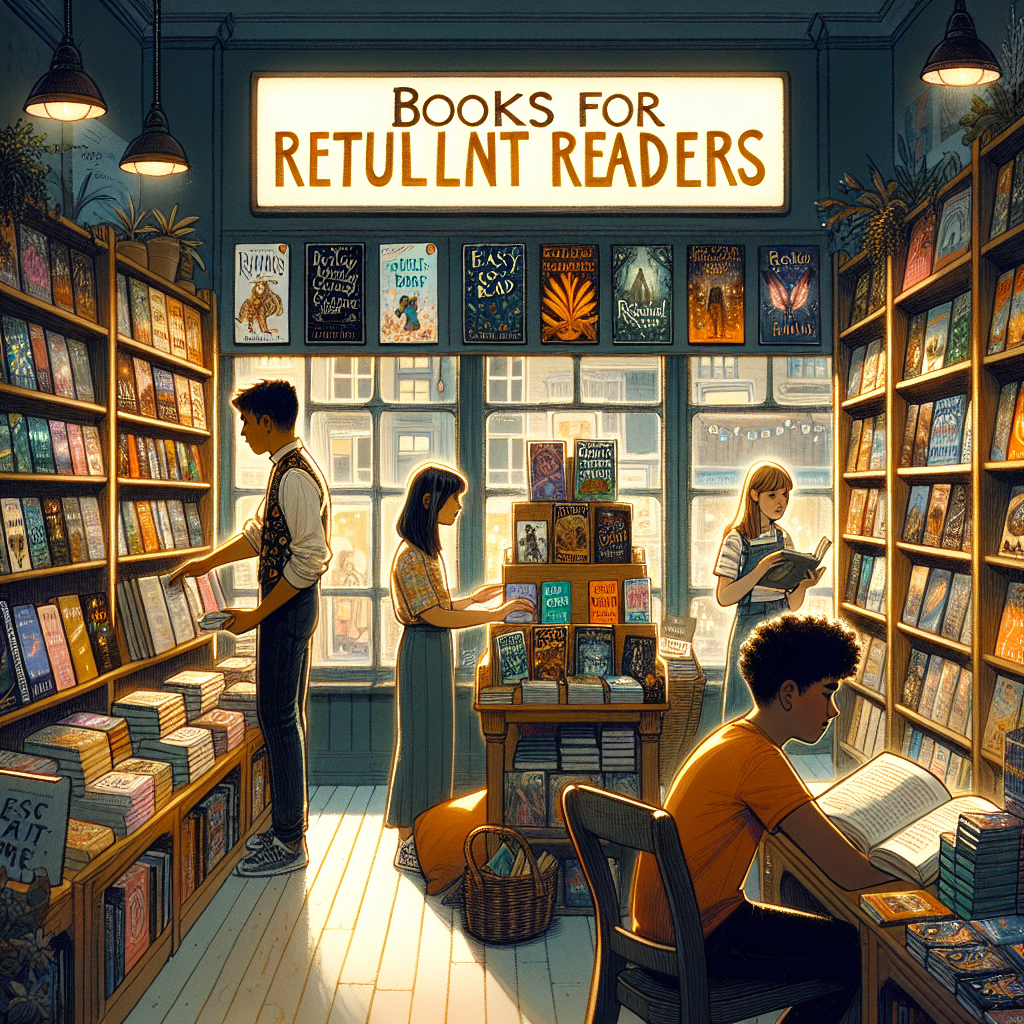
Engaging the Unengaged: YA Books for Reluctant Readers

Young Adult (YA) literature has seen a remarkable evolution over the past few decades, transforming from a niche market into a global phenomenon that captivates not just teenagers but adults as well. Despite this surge in popularity, a significant challenge persists: engaging reluctant readers. These are individuals who, for various reasons, do not show an interest in reading for pleasure. The reasons can range from difficulty in finding books that resonate with them, to struggles with reading itself. However, the right book can turn the tide, transforming a reluctant reader into an avid one. This article delves into the world of YA books tailored for reluctant readers, offering insights, recommendations, and strategies to captivate this unique audience.
Understanding Reluctant Readers
Before diving into book recommendations, it's crucial to understand who reluctant readers are and what drives their reluctance. They are not a monolithic group; their reluctance can stem from a variety of sources including:
- Lack of interest in traditional literary genres
- Difficulty in finding books that reflect their personal experiences or interests
- Challenges with reading skills or dyslexia
- A perception that reading is not a valuable or enjoyable use of time
Addressing these concerns requires a nuanced approach, focusing on accessibility, representation, and engagement.
Criteria for Selecting Books for Reluctant Readers
When selecting YA books for reluctant readers, several criteria come to the forefront:
- High Interest, Low Difficulty: Books that are easy to read but contain compelling content.
- Relatable Characters and Themes: Stories that reflect the reader's experiences, challenges, and aspirations.
- Fast-Paced Plots: Narratives that capture and hold the reader's attention from the first page.
- Visual Elements: Inclusion of illustrations or graphic novel formats to break up text and add interest.
- Short Chapters: Helps in providing a sense of accomplishment with each completed section.
These criteria not only help in selecting books but also in creating a more inclusive reading environment that acknowledges diverse needs and preferences.
Top YA Books for Reluctant Readers
Based on the criteria outlined, here are several YA books that have proven to be hits among reluctant readers:
- "The Outsiders" by S.E. Hinton: A timeless novel that explores themes of friendship, violence, and societal expectations, resonating with teenagers navigating their own place in the world.
- "Percy Jackson & The Olympians" by Rick Riordan: This series combines Greek mythology with modern adventure, appealing to readers interested in fast-paced plots and fantastical elements.
- "Speak" by Laurie Halse Anderson: A powerful novel about a teenager dealing with the aftermath of assault, offering deep emotional connection and validation for those with similar experiences.
- "The Hunger Games" by Suzanne Collins: A dystopian series that captivates with its strong protagonist, survival themes, and social commentary.
- "Diary of a Wimpy Kid" by Jeff Kinney: Though more middle grade, its humor and diary format can appeal to older readers looking for light, relatable content.
These books, among others, offer a gateway into the world of reading by meeting reluctant readers where they are, with content that speaks to their interests and experiences.
Strategies to Encourage Reading Among Reluctant Readers
Beyond selecting the right books, there are strategies that can further encourage reluctant readers to dive into the world of literature:
- Create a Reading-Friendly Environment: A comfortable and inviting reading space can make the act of reading more appealing.
- Offer Choices: Allowing readers to choose what they read empowers them and increases their engagement.
- Use Technology: E-readers and audiobooks can make reading more accessible and engaging for some reluctant readers.
- Encourage Social Reading: Book clubs or reading groups provide a social component to reading, making it a shared experience.
- Connect Books to Interests: Finding books that tie into existing hobbies or interests can serve as a bridge to more varied reading.
These strategies, combined with patience and encouragement, can significantly impact a reluctant reader's attitude towards reading.
Case Studies: Transforming Reluctant Readers
Real-world examples underscore the potential for transformation among reluctant readers. For instance, a middle school reading program focused on graphic novels saw a marked increase in reading engagement among students who previously showed little interest in traditional books. Similarly, a high school teacher reported success by incorporating audiobooks and book-to-movie adaptations into the curriculum, thereby offering multiple entry points into the material.
These case studies highlight the importance of flexibility and creativity in approaches to reading, demonstrating that when students' interests and needs are prioritized, engagement naturally follows.
Conclusion: A Gateway to Lifelong Reading
Engaging reluctant readers is not just about getting them to read more; it's about opening a door to a lifelong journey of discovery, empathy, and personal growth. By carefully selecting YA books that meet their needs and employing strategies that make reading a more enjoyable and accessible activity, educators, parents, and librarians can play a pivotal role in transforming reluctant readers into enthusiastic ones. The key lies in understanding the unique challenges and preferences of these readers and offering them a diverse array of books that not only entertain but also resonate on a deeper level. With patience, persistence, and the right resources, the world of reading can become a welcoming place for every young person.
https://pbpreviews.com/ya-books-for-reluctant-readers/?feed_id=746&_unique_id=667c5a73c338a
Comments
Post a Comment